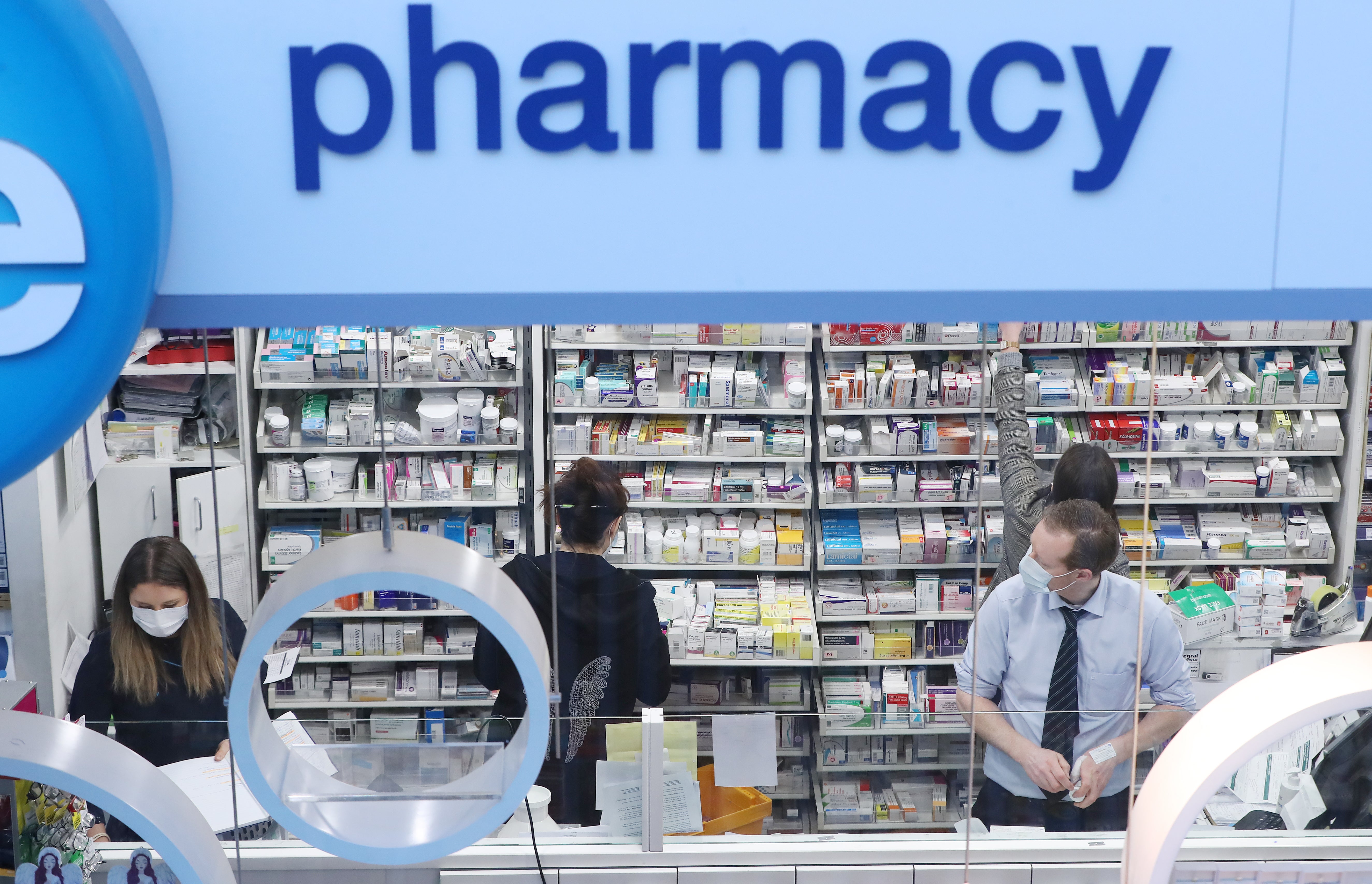Pharmacists to help check for potential cancer cases in NHS shake-up
It is hoped the move could help speed up the process of cancer diagnosis

Your support helps us to tell the story
From reproductive rights to climate change to Big Tech, The Independent is on the ground when the story is developing. Whether it's investigating the financials of Elon Musk's pro-Trump PAC or producing our latest documentary, 'The A Word', which shines a light on the American women fighting for reproductive rights, we know how important it is to parse out the facts from the messaging.
At such a critical moment in US history, we need reporters on the ground. Your donation allows us to keep sending journalists to speak to both sides of the story.
The Independent is trusted by Americans across the entire political spectrum. And unlike many other quality news outlets, we choose not to lock Americans out of our reporting and analysis with paywalls. We believe quality journalism should be available to everyone, paid for by those who can afford it.
Your support makes all the difference.Pharmacists are to be used to help spot potential cancer cases in a new NHS trial.
It is hoped that giving pharmacists more powers to send patients for cancer scans and tests will help improve the speed of diagnosis for many patients.
People with symptoms including a cough that lasts for three weeks or more, difficulty swallowing or blood in their urine will be able to see a pharmacist and be referred directly for scans and checks without needing to see a GP.
These plans have the power to truly transform the way we find and treat cancer, and ultimately spare thousands of patients and their families from avoidable pain and loss
Hundreds of pharmacists in England will take part in the pilot scheme and pharmacies will be invited to apply to be involved soon.
Meanwhile, the NHS also announced plans to launch “roaming liver trucks” which will offer people on-the-spot scans for those at risk of liver cancer.
Quick scans will be offered to hundreds of people at GP practices, town centres and foodbanks.
It follows the success of “lung trucks”, which has led to more than 30,000 people being invited for lung checks every month at locations in the community including supermarket car parks and football stadiums.
The NHS said this had led to hundreds of cancers being caught earlier.
Elsewhere, the health service also announced plans to offer genetic screening to people in Jewish communities at high risk of having a genetic mutation linked to a higher risk of breast, ovarian and prostate cancers.
Up to one in 40 people with Jewish heritage carry BRCA genetic mutations which can lead to certain cancers, compared with one in 400 in the general population.
The NHS hopes the move will help identify thousands more carriers of the mutation over the next three years which will enable these people to access cancer surveillance and prevention services.
NHS England boss Amanda Pritchard will announce the initiatives at the NHS ConfedExpo conference in Liverpool.
Addressing the meeting, she will say: “The NHS will not rest in our efforts to catch cancer early and save more lives.
“Throughout the pandemic, NHS staff developed new and innovative ways to ensure patients could get cancer checks and treatment as normal, including by providing Covid-safe drugs and delivering chemo at home.
“NHS staff have continued this innovation; from liver trucks travelling around the country to genetic testing and high-street checks, we want to make it as easy as possible for those most at risk to get vital, lifesaving tests.
“These plans have the power to truly transform the way we find and treat cancer, and ultimately spare thousands of patients and their families from avoidable pain and loss.”
The health service has committed to increasing the proportion of cancers caught at an early stage when the disease is easier to treat, offering a better prospect of survival.
At the moment around half of cancers are caught early but the NHS aspires to increase this figure to three quarters.
Commenting on the new initiatives, Dr Anthony Cunliffe, national clinical advisor for primary care at Macmillan Cancer Support, said: “Doctors and nurses are working tirelessly to diagnose and treat the tens of thousands of people entering a very busy cancer care system.
By changing the way people engage with the health service, we have the potential to help diagnose more cancers at an earlier, more treatable stage
“This pilot will give people the opportunity to access more trained professionals in their community to get symptoms investigated, potentially getting them into the system earlier and easing pressure on primary care.
“The quicker someone is diagnosed, the better their chances of survival.”
Michelle Mitchell, Cancer Research UK’s chief executive, added: “We’re pleased to see investment in innovative models of care, such as referrals from community pharmacy teams and mobile scanners.
“By changing the way people engage with the health service, we have the potential to help diagnose more cancers at an earlier, more treatable stage. We look forward to seeing how these efforts will support the NHS’s ambitious early diagnosis targets.”